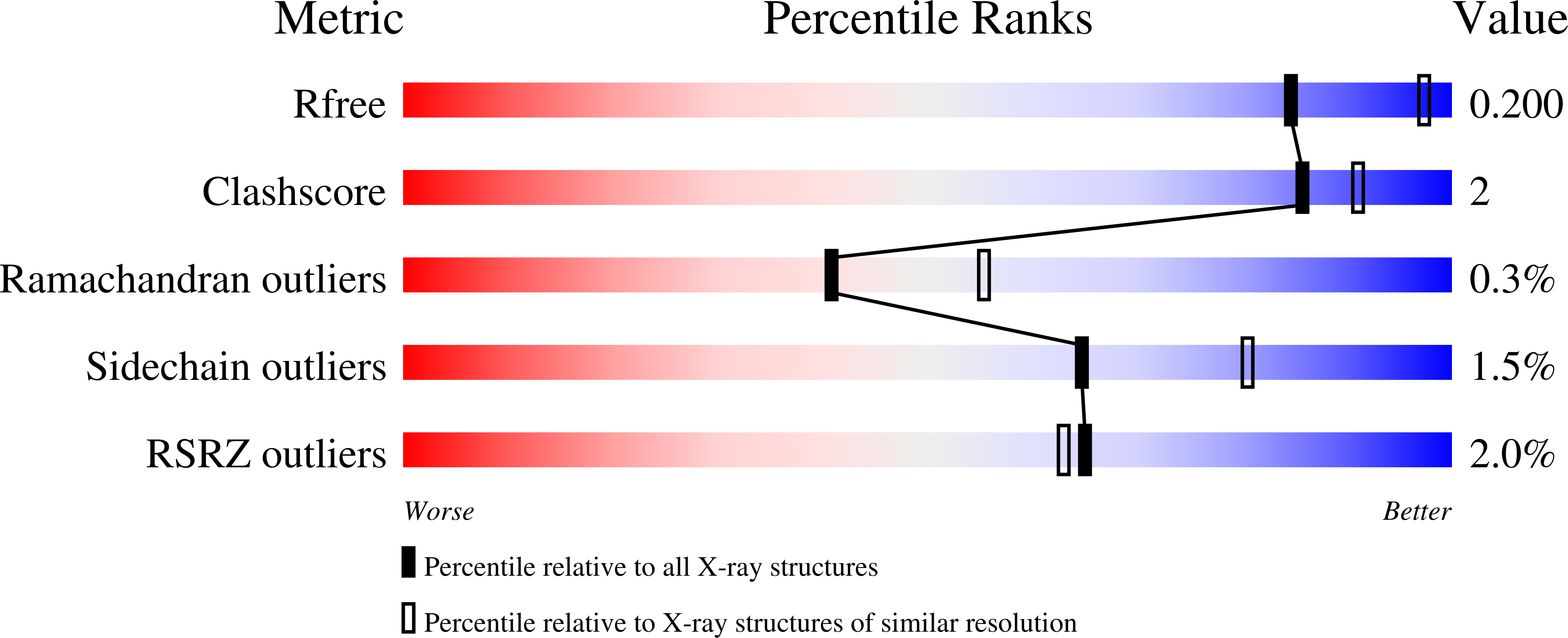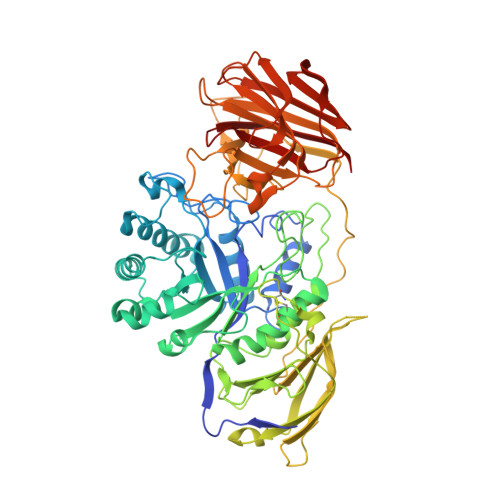Azasugar Inhibitors as Pharmacological Chaperones for Krabbe Disease.
Hill, C.H., Viuff, A.H., Spratley, S.J., Salamone, S., Christensen, S.H., Read, R.J., Moriarty, N.W., Jensen, H.H., Deane, J.E.(2015) Chem Sci 6: 3075
- PubMed: 26029356
- DOI: https://doi.org/10.1039/c5sc00754b
- Primary Citation of Related Structures:
4UFH, 4UFI, 4UFJ, 4UFK, 4UFL, 4UFM - PubMed Abstract:
Krabbe disease is a devastating neurodegenerative disorder characterized by rapid demyelination of nerve fibers. This disease is caused by defects in the lysosomal enzyme β-galactocerebrosidase (GALC), which hydrolyzes the terminal galactose from glycosphingolipids. These lipids are essential components of eukaryotic cell membranes: substrates of GALC include galactocerebroside, the primary lipid component of myelin, and psychosine, a cytotoxic metabolite. Mutations of GALC that cause misfolding of the protein may be responsive to pharmacological chaperone therapy (PCT), whereby small molecules are used to stabilize these mutant proteins, thus correcting trafficking defects and increasing residual catabolic activity in cells. Here we describe a new approach for the synthesis of galacto -configured azasugars and the characterization of their interaction with GALC using biophysical, biochemical and crystallographic methods. We identify that the global stabilization of GALC conferred by azasugar derivatives, measured by fluorescence-based thermal shift assays, is directly related to their binding affinity, measured by enzyme inhibition. X-ray crystal structures of these molecules bound in the GALC active site reveal which residues participate in stabilizing interactions, show how potency is achieved and illustrate the penalties of aza/iminosugar ring distortion. The structure-activity relationships described here identify the key physical properties required of pharmacological chaperones for Krabbe disease and highlight the potential of azasugars as stabilizing agents for future enzyme replacement therapies. This work lays the foundation for new drug-based treatments of Krabbe disease.
Organizational Affiliation:
Department of Haematology , Cambridge Institute for Medical Research , University of Cambridge , Cambridge CB2 0XY , UK . Email: jed55@cam.ac.uk.


















